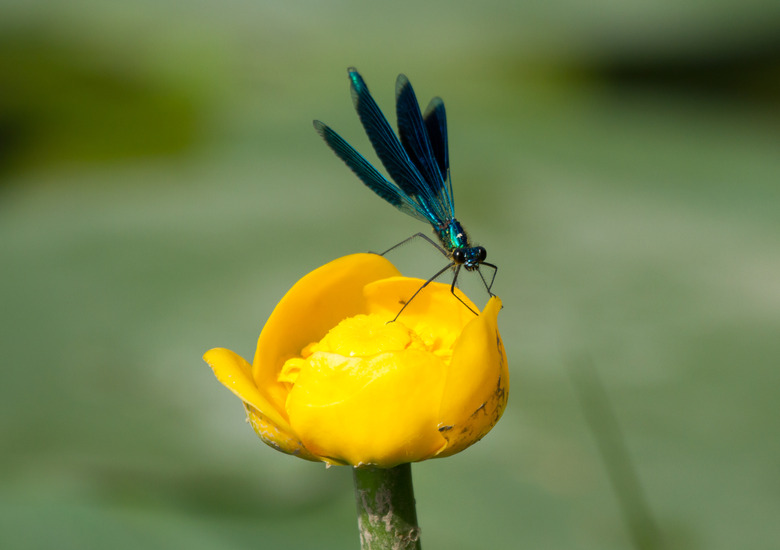There's An Insect "Apocalypse" – And It's Really Bad
It's not just bees that are dying off at alarming rates.
Entomologists worldwide have warned that in addition to bees dropping like flies, it's, well ... the flies that are dropping dead, too.
In recent years, everyone from scientists to curious observers have noticed what's now known as the "windshield phenomenon." Decades ago, many claim, a country drive used to result in a car windshield splattered with bug guts, sometimes so thick you had to pull into the nearest gas station to wipe it all off. Now, though, the same drive might result in a dead fly here or a mosquito bite there, and a windshield as clean as when you'd pulled out of the driveway.
The phenomenon was enough for the New York Times to declare a global "Insect Apocalypse" in an article late last year. The article and other worried screeds from entomologists warned that insects were facing extinction. That kind of event could have a catastrophic impact on our life on Earth, as well as be an eerie glimpse into a future where factors like climate change, pollution and urbanization lead to our planet's destruction.
What's Happening to the Bugs?!
What's Happening to the Bugs?!
Well ... that's the big question. After the New York Times article came out and called attention to the big bug die-off, some scientists came forward with a slightly less apocalyptic view of the situation. Most pointed out that studying insect populations is nearly impossible work. For one, insects aren't a single species. They aren't even made up of a few hundred or thousand species.
There are _millions_ of insect species, all with wildly different habitats and needs. An environmental issue or toxic chemical that harms one type of species could potentially help another species thrive, making it difficult to pin an insect apocalypse to a single factor.
Plus, it's really, really, really hard to count insects. In addition to there just being so many more insects in a population than, say, humpback whales in an Atlantic pod, insects also go through intense boom and bust cycles. That makes it incredibly difficult to collect solid data about their populations and track numbers over time.
So is it an Apocalypse or Not?
So is it an Apocalypse or Not?
But now that evidence is mounting about an apocalypse, more scientists are trying to overcome those data challenges and track just what's going on with the global insect population.
That mounting evidence for one isn't just anecdotal – just last week, a group of volunteer German bug collectors came forward with information about the insects they've been collecting for 30 years. Since 1982, the team has meticulously collected and recorded as many as 80 million insects from traps whose locations have remained constant over time. Throughout the long and ambitious research project, the insect numbers have fallen by 76 percent. The team said they noticed the decline starting in 2011, and have only seen it get dramatically worse since.
Fueled by such findings from teams like these German volunteers, more scientists are trying to receive funding to dive headfirst into more ambitious and large-scale research projects.
After all, this is important information to have. At first, a bunch of insects dying doesn't seem like the worst thing — who wouldn't love to spend a mosquito-free summer day, not to mention prevent the thousands of deaths each year from insect-borne illnesses like malaria? But insects are a critical part of food chains, and their extinction could have devastating effects on animal life and the environment. Next time you see a fly, maybe think twice before you swat.
Cite This Article
MLA
Dragani, Rachelle. "There's An Insect "Apocalypse" – And It's Really Bad" sciencing.com, https://www.sciencing.com/theres-an-insect-apocalypse-and-its-really-bad-13720001/. 11 July 2019.
APA
Dragani, Rachelle. (2019, July 11). There's An Insect "Apocalypse" – And It's Really Bad. sciencing.com. Retrieved from https://www.sciencing.com/theres-an-insect-apocalypse-and-its-really-bad-13720001/
Chicago
Dragani, Rachelle. There's An Insect "Apocalypse" – And It's Really Bad last modified March 24, 2022. https://www.sciencing.com/theres-an-insect-apocalypse-and-its-really-bad-13720001/
